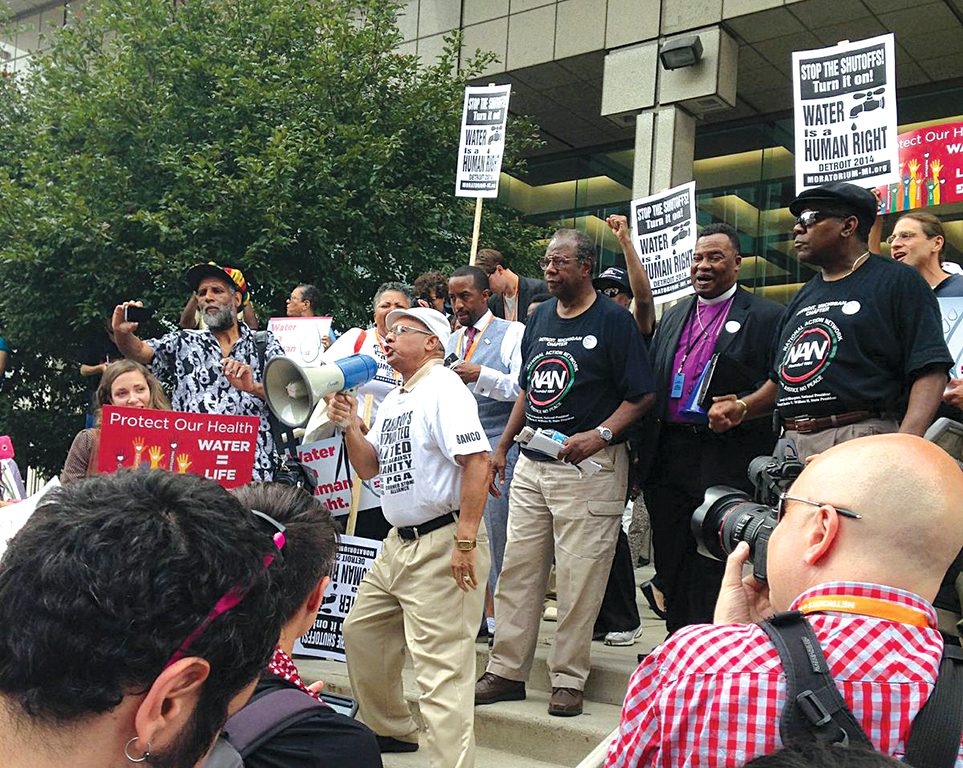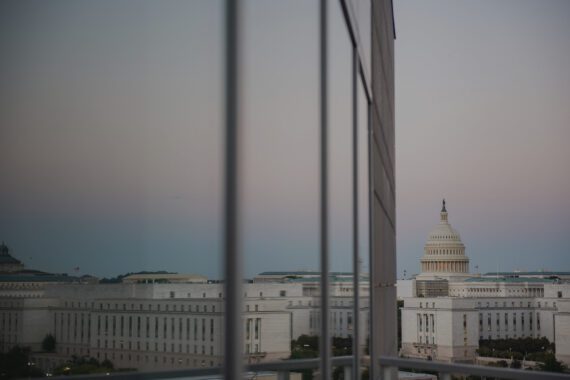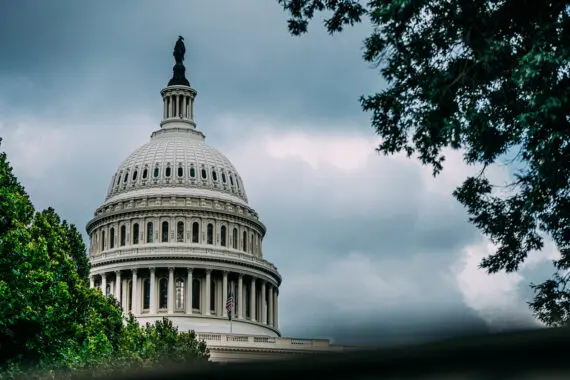Editor’s note: This post is part of a weekly, year-long series called the Nourishing Effect. It will explore how hunger affects health through the lens of the 2016 Hunger Report. It is featured this week as news continues to emerge from Flint, Michigan, where lead contamination of the water supply has endangered the long-term health of up to 12,000 children, most from minority communities. The Hunger Report is an annual publication of Bread for the World Institute.
By Patricia Jones and Amber Moulton
Water is essential to life. The majority of people living in the United States have a reliable supply of safe water. But too often, poverty intersects with race and ethnicity to deny people of color and indigenous communities their human right to water.
The Unitarian Universalist Service Committee (UUSC) works to implement the human right to water and sanitation through support for grassroots partners, advocacy, and a legal strategy in the United States and across the globe. Thus far, only one U.S. state, California, has enshrined the human right to water in law. In 2012, a coalition led by the Environmental Justice Coalition for Water, the Safe Water Alliance, UUSC, Unitarian Universalist congregations, and other faith-based activists helped make California’s human right to water bill, A.B. 685, a reality.
The main problem in the United States is the “affordable” requirement of the right to water. The international standard is that water bills should not exceed 2.5 percent of a household’s monthly income. A recent study by the U.S. Conference of Mayors found that under this standard, large percentages of the U.S. population face water bills that are unaffordable.
By and large, municipal authorities have failed to create adequate affordability plans to help low-income residents maintain access to safe water. In 2014, the city of Detroit began disconnecting tap water service to about 35,000 residential accounts. City officials claimed that people were simply refusing to pay their bills. But in a city where 40 percent of the residents live below the poverty line, the reality was that poor households could not afford their rising water bills.
Detroit families brought a class action suit, Lyda et al v. City of Detroit, to stop the shutoffs. The plaintiffs gave harrowing examples of the impact of the shutoffs on small children, elderly people, and people with disabilities. Plaintiff Nicole Cannon was a mother of three living with a chronic illness. Her unpaid water bill had reached $3,000 because of a leak in her rental home that her landlord refused to repair. As she struggled to pay her bills with a monthly Social Security Disability check of $648, Detroit Water and Sewer notified her that to avoid having her water shut off, she must pay $241 a month toward her balance. In her deposition, Ms. Cannon noted that this was unsustainable and that, despite seeking help from various sources, she had found no way to maintain running water in her home. She died in January 2015 at the age of 44.
One measure cities can take is to create water affordability plans that align water bills with people’s actual incomes. The city of Philadelphia took a welcome step in 2015, enacting an ordinance that requires the city to research and establish an affordability plan that allows low-income water customers the opportunity to enroll in a payment plan based on their income and individual needs, while maintaining the financial sustainability of the utility. At the national level, the EPA must review its affordability guidelines and develop policies and plans that meet the needs of the country’s lowest-income people.
The international human rights community has taken note of U.S. difficulties in making the right to water a reality in practice. In 2011, the United Nations Special Rapporteur for the Human Right to Water conducted a mission to the United States and met with people across the country. In 2015, the U.N. Human Rights Council Universal Periodic Review of the United States recommended stepping up efforts to secure the human right to water, especially to avoid discrimination based on poverty, race, and ethnicity.
Patricia Jones is senior program leader for the Human Right to Water and Amber Moulton is a researcher for the Unitarian Universalist Service Committee (UUSC). For more information on UUSC’s human right to water program, visit their website here. This feature is adapted from a story that originally appeared on pp. 38-39 of the 2016 Hunger Report: The Nourishing Effect.



